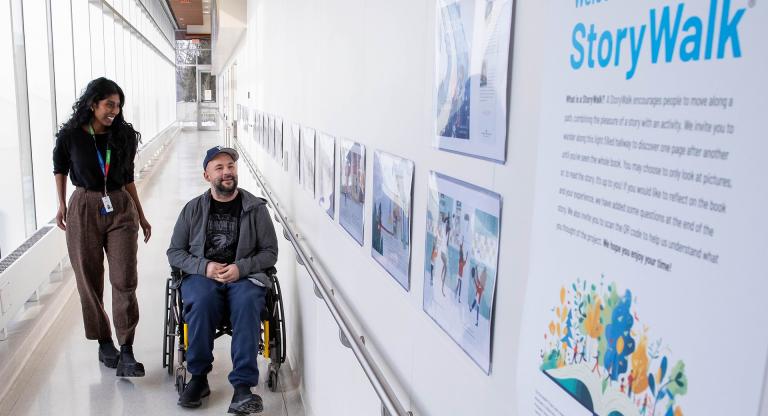Registered Dietitians help patients eat well with IBD

Whether we’re meeting friends for a cup of coffee, celebrating a birthday with cake or seeking comfort from chicken soup, food is more than just sustenance. But for the more than 270,000 Canadians living with inflammatory bowel disease (IBD), food can also be a source of discomfort, pain and anxiety.
Mount Sinai’s Zane Cohen Centre for Digestive Diseases provides specialized care and surgical treatments for patients living with IBD. Julie Cepo and Jennifer Ball are Registered Dietitians who consult on patients’ nutritional needs including those who are hospitalized and need nutrition through intravenous fluids or a feeding tube, patients returning to eating as they prepare to go home from the hospital, and after they’ve returned to the outpatient setting.
We asked Julie and Jennifer to answer some frequently asked questions about the role of diet for patients living with IBD and how a dietitian can help.
How does the relationship with food change for people living with IBD?
People living with IBD often experience symptom flare ups followed by periods of remission where they have little to no symptoms. Eating certain foods can be associated with worsening of symptoms during flare ups. This makes it hard to trust that foods may be better tolerated when the disease is in remission. A Registered Dietitian can work with patients to help them rebuild confidence and heal their relationship with food.
What role does nutrition play in managing IBD?
Modifying a diet can improve symptoms and provide some control that can be psychologically helpful. Emerging research is promising for the role of diet particularly for Crohn’s disease relapses. It is an exciting time for science to better understand connections about diet and IBD.
Is it true there is no single IBD diet that will benefit all patients?
Yes, and while this can be frustrating for individuals living with IBD, the disease affects people very differently and requires an individualized approach to nutrition. Many people intuitively discover improvements from limiting specific foods through trial and error. This speaks to the individual nature of IBD as well as the complex relationship between food and the diverse gut microbiome.
How can a Registered Dietitian help patients find a diet that works for them and helps manage symptoms?
Any internet search of a health condition will generate multiple diet results that can be confusing to navigate. A dietitian helps people identify valid science from fads and gimmicks. Dietitians take an evidence-based individualized approach that includes strategies to help when eating may be difficult, or assisting with recommendations and education for improved nutrition status goals.
Some patients find eliminating certain foods or food groups helps their symptoms, but this can lead to a risk of nutrient deficiencies. A dietitian can identify alternate foods and supplements for missing nutrients.
What tips do you have to help people living with IBD when it comes to managing symptoms through making changes to their diets?
- Food journals that track everything you eat and how you feel after eating can help identify trends with symptoms.
- When eliminating certain foods, it is important to introduce or limit one food at a time and continue this for at least a day or two to see if there really is a relation to symptoms. When modifying your diet, it’s a good idea to get advice from a doctor or Registered Dietitian to make sure you’re getting the nutrients you need.
- Some foods that trigger symptoms can still be enjoyed if they’re prepared differently, for example vegetables well-cooked or blended into soups are often better tolerated than raw. A Registered Dietitian can help with recommendations.
- It is often best to try new foods at home rather than in a social situation until tolerance is established.
- Some individuals find eating smaller, more frequent meals can be helpful. Plan your usual meal pattern, but choose a smaller amount than usual and supplement in between with the remaining food or well-balanced snacks.
Is hydration more important for people living with IBD?
Meeting hydration needs is important for everyone. Individuals with disease flares or are recovering post-surgery can require additional fluids and electrolytes. Beverages with caffeine, guarana, carbonation, or high sugar content can worsen intolerance symptoms. Many beverages are reasonable choices including water, plant based beverages, milk, soups, diluted fruit juice, and if needed, over the counter electrolyte replacement/hydration drinks.












